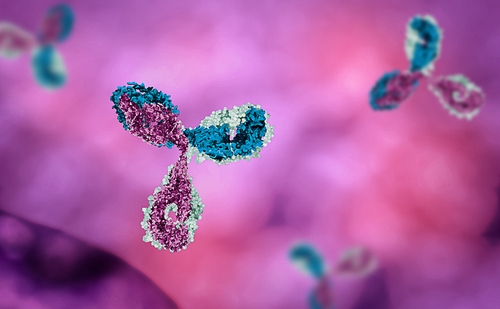An investigational antibody-drug conjugate, TRPH-222, effectively reduced tumor burden in mice with diffuse large B-cell lymphoma (DLBCL) and mantle cell lymphoma (MCL), and is well-tolerated in non-human primates, a new study shows.
These findings came from preclinical safety studies, which are expected to support a clinical development program evaluating TRPH-222. Clinical trials are planned to begin in 2018.
The preclinical data will be presented at the 59th ASH Annual Meeting & Exposition, Dec. 9-12, in Atlanta, Georgia.
The poster, titled “Trph-222, a Novel Anti-CD22 Antibody Drug Conjugate (ADC), Has Significant Anti-Tumor Activity in NHL Xenografts and Is Well Tolerated in Non-Human Primates,” will be presented by Ann Maclaren, PhD, associate director of translational science at Triphase Accelerator.
TRPH-222, also known as CAT-02-106, is being developed by Catalent Biologics in collaboration with Triphase Accelerator for the treatment of lymphoma.
“We are excited about the rapid progress Triphase has achieved with this important compound, and pleased to be partnering with such a capable organization to advance this treatment to patients,” Mike Riley, vice president and general manager of Catalent Biologics, said in a press release.
Like other antibody-drug conjugates, the drug is made up of an antibody that targets a specific cancer protein linked to a toxic payload. When the antibody binds to the cells, it releases its toxic cargo, killing the cancer cells.
TRPH-222 targets the CD22 protein, which is produced by almost all B-cell cancers, including non-Hodgkin’s lymphoma and acute lymphoblastic leukemia.
Preclinical studies in DLBCL mouse models have shown that a once-weekly intravenous injection of a 3 mg per kg body weight dose of TRPH-222 completely eliminated the tumors after 28 days. Similarly, a 10 mg/kg dose given once every three weeks also resulted in complete reductions in tumor volume.
In non-human primate studies, animals received ascending doses every three weeks. TRPH-222 was well tolerated in all doses, and all animals survived until the study’s end without TRPH-222-related side effects.
Results from these studies were also published Dec. 4 in Molecular Cancer Therapeutics. The report was titled, “CAT-02-106, a site-specifically conjugated anti-CD22 antibody bearing an MDR1-resistant maytansine payload yields excellent efficacy and safety in preclinical models.”
“We continue to be encouraged by the preclinical data from the TRPH-222 program, indicating better tolerability and an expanded therapeutic index for this SMARTag ADC as compared to conventional ADCs,” said Dr. Henry Lowman, executive director of research and development at Triphase.
“We believe this molecule can play an important role in the treatment of lymphoma and we are committed to accelerating its development into the clinic,” he added.


